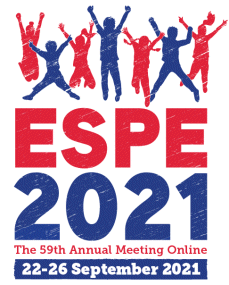
59th Annual ESPE (ESPE 2021 Online)
Online,
22 Sept 2021 - 26 Sept 2021

The 59th ESPE Annual Meeting will now be held online in September 2021.



